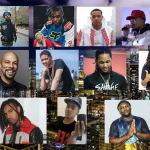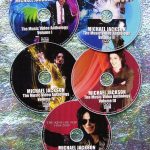No, it is not a sin to listen to rap music. Rap music, like any other genre, can have both positive and negative elements.
However, it is up to the individual listener to discern and decide what kind of music they choose to consume and the impact it has on their life and beliefs. Some people find inspiration and motivation in certain rap songs, while others may come across lyrics that contradict their values.
Overall, the morality of listening to rap music is a subjective matter and depends on an individual’s personal convictions and decision-making. In recent times, rap music has become one of the most popular genres globally, with millions of people listening and dancing to it daily. However, some people have raised moral and ethical concerns regarding rap music’s content and values. Some argue that the genre glorifies violence, misogyny, drugs, and other negative behaviors and beliefs, thereby negatively influencing the younger generation. Conversely, others argue that rap music can be an outlet for artists to address social and personal issues and reflect on their experiences and cultures. This article explores whether listening to rap music is a sin and discusses the arguments for and against the genre’s morality and impact on society.

Credit: www.gutenberg.org
The Controversial Nature Of Rap Music
Rap music has been a contentious topic of discussion for decades, often sparking debates about censorship and freedom of expression. However, in recent years, rap music has become increasingly controversial for a myriad of reasons. In this section, we will analyze some of the key reasons for this controversy.
Analyze Why Rap Music Has Become Increasingly Controversial In Recent Years
- The rise of mumble rap and its perceived lack of substance
- The increasing popularity of soundcloud rappers, who often have non-existent or troubled backgrounds
- The cultural appropriation of rap music by non-black artists
- The issues of misogyny, violence, and drug culture often glorified in mainstream rap music
- The use of offensive language and slurs in rap music
- The normalization of misogyny and sexual objectification in rap music
- The music industry’s tendency to prioritize profit over artistic expression
Address Criticisms And Concerns About The Content Of Rap Music, Including Explicit Lyrics And Glorification Of Violence, Drugs, And Misogyny
- Critics argue that explicit lyrics have a negative impact on society, particularly on children and young adults
- Some feel that the glorification of drugs and violence contributes to a culture of harmful behavior
- Others argue that the misogynistic themes present in some rap music contribute to the objectification and dehumanization of women
Discuss The Role Of Censorship And Freedom Of Expression In The Debate Surrounding Rap Music
- Those who advocate for censorship argue that certain themes and language should not be permissible in the creation and distribution of rap music
- Supporters of freedom of expression believe that censorship is a violation of artistic freedom and stifles important conversations
- It’s worth noting that the censorship of rap music often specifically targets black artists, which raises questions about institutionalized racism and discrimination
The controversial nature of rap music is a complex issue that involves considerations of censorship, artistic expression, and cultural influence. While there are certainly valid criticisms of rap music and its content, it’s equally important to recognize the artistry and cultural significance of the genre.
It’s up to each individual listener to decide whether or not they find the content of rap music acceptable, but the debate around censorship and artistic expression will undoubtedly continue for years to come.
The Socio-Cultural Significance Of Rap Music
Rap music is considered one of the most significant cultural movements of the 21st century. The genre pioneered in the african american and latino communities in the 1970s and has since crossed boundaries to make a considerable impact on mainstream music, fashion and art.
Here are some points to explore the socio-cultural significance of rap music:
- Impact on music:
- Rap music is characterized by its unique rhythmic style and lyrical flow, setting it apart from other genres.
- The genre helped usher in a new era of music that was not only entertaining but also socially conscious.
- The art of storytelling through rap music forms an essential component that enables artists to express their thoughts and experiences vividly.
- Impact on fashion:
- The influence of rap music on fashion is apparent, with rappers shaping trends that transcend the music industry.
- Rappers dress in a way that reflects their identity, often incorporating streetwear elements.
- The streetwear fashion movement, now worth billions, owes much of its inception to the hip-hop culture that rap music helped to create.
- Impact on art:
- In addition to music and fashion, rap music has also developed into an art form itself.
- From graffiti to street art, rap music often inspires visual cultures with innovative and bold expressions.
- The stigma that associated hip-hop with criminality has also reduced as the critical artform that rap music has become continues to gain mainstream recognition.
Analyzing The Intersectional Factors That Shape The Experiences Of Rappers And Their Audiences
Intersectionality, a term coined by legal scholar kimberlé crenshaw, refers to the interconnectedness of social identities. The experiences of rappers and their audiences are shaped by various factors that intersect in complex ways, including race, gender, class, and sexuality. Here are some points to consider when exploring intersectionality factors that shape the experiences of rappers and their audiences:
- Race:
- For years, rap has been described as a musical form that is synonymous with black culture.
- The genre has been a powerful tool for black artists to take ownership of their cultural space and to communicate their experiences better.
- The genre has helped to foster a sense of community among black audiences.
- Gender:
- Historically, the rap industry has been a predominantly male-dominated space, with male rappers receiving more recognition and attention than their female counterparts.
- However, female rappers have continued to fight for their space and recognition in the industry.
- For example, female rappers such as nicki minaj have challenged traditional gender roles with their music.
- Class:
- Rap music has often tackled subjects relating to socioeconomic challenges that disadvantaged and marginalized communities face.
- Rappers from working-class backgrounds have consistently used their music to speak about their experiences of societal inequality.
- These experiences have resonated with audiences who share similar backgrounds.
- Sexuality:
- Historically, the rap industry has been hostile to non-heterosexual identities.
- However, in recent years, there has been an emergence of rappers who identify as lgbtq+ that have challenged the norms, particularly in hip-hop culture.
- These artists have helped to foster more inclusivity in the rap music space.
The Role Of Rap Music In Socio-Economic And Political Contexts Of Marginalized Communities
Rap music operates in a broader socio-economic and political context that marginalizes communities, particularly low-income communities of color. Here are some points to explore the relationship between rap music and marginalized communities:
- Socio-economic context:
- Rap music has consistently highlighted the issues of economic inequality and the hardships that marginalized communities face daily.
- These communities often experience discrimination due to their race, class, and gender, and rap music has acted as a medium for voicing their concerns.
- Political context:
- Rappers have used their music as a platform to address political issues affecting their communities.
- Rap music helps to educate people about issues such as police brutality, mass incarceration, and racism.
- Rappers have used their music to mobilize their audiences to effect social change and to call for political action.
Rap music has an enormous socio-cultural significance that extends well beyond mere entertainment. The genre has impacted the broader cultural context, including music, fashion, and art. Rappers and their audiences’ experiences are shaped by intersectionality factors, and rap music has played an essential role in giving a voice to marginalized communities’ socioeconomic and political struggles.
The Ethics Of Consuming/Producing Rap Music
Discuss The Ethical Dilemmas Surrounding The Consumption And Production Of Rap Music
Rap music has faced controversy over its content, messaging, and the lifestyles of the artists who produce it. The ethics of consuming and producing rap music come with several dilemmas, including:
- Should the public consume music that glorifies violence and objectifies women?
- Should artists profit from music that exploits the most vulnerable in society?
- What responsibility do artists and the music industry have in the messages they promote to their audiences?
While these dilemmas are not unique to rap music, they have become synonymous with the industry. As such, it is essential to examine the different ways in which the music industry profits and the exploitation of vulnerable communities.
Analyze The Ways In Which The Music Industry Profits From Controversial Content And The Exploitation Of Vulnerable Communities
The music industry has a history of exploiting vulnerable communities and profiting from music with controversial content. Here are some ways in which the industry profits from controversial content and the exploitation of vulnerable communities:
- The common practice of selling violence and misogyny is to increase album sales.
- Labels often offer lucrative contracts to artists that have a criminal past, as this creates a “gangster” persona that resonates with their audience.
- The demand for rap music that glorifies illegal lifestyles with guns, drugs and money is rampant.
The music industry has a responsibility to consider the unintended consequences of their actions, such as contributing to gun and drug violence, and the continued exploitation of vulnerable communities.
Address The Ethical Responsibilities Of Artists, Consumers, And The Industry In Tackling These Issues
Artists, consumers, and the industry have ethical responsibilities in tackling the issues of controversial content and the exploitation of vulnerable communities.
Artists:
- Artists have a responsibility to their audience to create meaningful and authentic music rather than engaging in sensationalism.
- Conscious lyrics about socioeconomic issues can inspire listeners to fight the inequality and injustice.
- Artists should refrain from perpetuating negative stereotypes about specific communities.
Consumers:
- Consumers need to be mindful of the messages in the music they consume.
- Instead of supporting artists who exploit and denigrate vulnerable communities, consumers should invest in artists who create meaningful and relevant music.
The industry:
- The industry should promote and market artists who produce ethical music that contributes positively to society.
- The industry should work towards eliminating the exploitation of vulnerable communities and promoting a message of positivity and change.
Although societal issues are complex, we all have a role to play in shaping a non-exploitative and positive rap music culture. We can listen to and support socially conscious and ethical rap music to effect change towards our larger community.
Frequently Asked Questions For Is It A Sin To Listen To Rap Music
Is Listening To Rap Music A Sin?
No, listening to rap music is not a sin in and of itself. However, if the lyrics contain inappropriate content that goes against your religious or personal beliefs, it may be considered a sin for you.
What Should I Look For In Rap Music Lyrics?
When listening to rap music, pay attention to the lyrics. Look for messages that promote positivity and avoid songs with offensive lyrics that go against your values or religious beliefs.
Can Rap Music Negatively Affect Me?
Some studies suggest that listening to violent or offensive rap music can desensitize individuals to violence and aggression. It’s important to be mindful of the type of rap music you listen to and how it may affect you.
How Can I Enjoy Rap Music Without Feeling Guilty?
If you enjoy rap music but feel guilty due to its negative reputation, focus on finding artists and songs with positive messages. Additionally, consider listening to clean versions of songs or instrumental versions to avoid offensive lyrics.
Conclusion
After thoroughly researching the topic, it is safe to say that there is no straightforward answer to whether it is a sin to listen to rap music. While some argue that the lyrics promote negative behavior and go against biblical teachings, others view it as a form of expression and artistic freedom.
Ultimately, it is up to individuals and their personal beliefs to decide whether or not they should listen to rap music. However, it is important to be mindful of the lyrics and messages being conveyed in the music we choose to consume as it can influence our thoughts and actions.
As with anything in life, balance and discernment are key. It is possible to enjoy and appreciate rap music while also being conscious of its potential impact on our spirituality and overall well-being.













